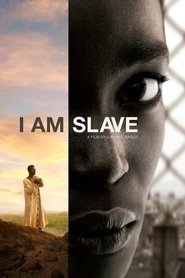Channel 4 TV Series - Page 72
-
Buy It Now
2018
star 8Inventors, creators and sellers of new products have just 90 seconds to demonstrate their item before an audience of buyers in the hope of securing an order for their product. Hosted by Brian Conley. -
Mobil 1 The Grid
0000
Mobil 1 The Grid
0000
Mobil 1 The Grid is a motorsport magazine show, which airs on Channel 4 in the UK on Saturday mornings and is repeated during the following week on Motors TV. It is also broadcast on NBC Sports Network in North America and Fox Sports 3 in Latin America. The show is presented by Eddy Temple-Morris and Charlie Brougham and supported by lubricant Mobil 1. It is produced by Sunset and Vine. The show first aired in March 2009, and there were 26 weekly shows during the first year. In 2013, this increased to 30 episodes supported by a new website which hosts exclusive online features. -
Hollyoaks: On The Pull
2004
Hollyoaks: On The Pull was a documentary following the open castings for roles in Hollyoaks. The series was transmitted in December 2004 and February 2005. -
Gophers!
0000
Gophers!
0000
Gophers! was a Channel 4 children's programme about a family of American gophers who move into a new neighbourhood, called Sycamore Heights, living next door to a family of uptight but well-intentioned rabbits, The Burrows. There were many recurring jokes within this short lived show such as Arthur Burrows' vegetables planning a rebellion to escape his garden, a mad scientist ferret called Dr Wince, whose ambition was to conquer the world by obtaining a crystal buried in the Gophers' garden with the help of his reptilian servant Sly, and an alien in love with a zucchini determined to get home. Also there were Stereotypical "Mexican" cockroaches who lived in the Gophers' house or Trailer Park Mobile Home always trying to steal their food. -
Meal Deals: Behind the Bargain
0000
The classic meal deal – a sandwich, a soft drink and a snack – has millions of combinations that are hotly debated up and down the country. But which of the many available options will reign supreme? -
Vicky Pattison: My Deepfake Sex Tape
2025
Vicky boldly immerses herself in the world of deepfake pornography, making her own sex tape, and speaking to the victims and perpetrators of one of the darkest uses of AI. -
Help! We Bought a Hotel
2024
From lacklustre lodgings and past-it palazzos to dilapidated digs and beaten-down B&Bs, intrepid renovators breathe new life into empty and unloved hotels, guesthouses and mansions -
Five Star Christmas: Inside Corinthia
2022
An exclusive look at luxury hotel Corinthia London as the team prepares a sumptuous Christmas to wow its guests. -
You Won't Believe This
2022
Ellie Taylor hosts as ordinary people tell extraordinary stories - but only one is true. With the help of real interrogators, can our wannabe supersleuth contestants sort fact from fiction to win £5k? -
Our Drugs War
2010
Our Drugs War
2010
This three-part series presented and directed by award-winning filmmaker, Angus Macqueen, examines the global story of drugs from the streets of Edinburgh to the poppy fields of Afghanistan: from demand and consumption to supply. The series demonstrates that the astonishing cost and harm to society from our war on drugs is now worse than that of the drugs themselves. -
Smuggled
2019
Smuggled
2019
Eight British citizens try to smuggle themselves back into Britain without their passports. Will Border Force catch them? -
Something for the Weekend
0000
star 7Something for the Weekend was a short lived gameshow presented by Denise Van Outen. -
Kookyville
0000
star 3Kookyville is a British comedy sketch show that aired on 25 November 2012 on Channel 4. The programme, created by Nichola Hegarty, is different from other sketch shows in that "These people are not actors or comedians, and there's no script...they're just real funny people." -
I Am Slave
0000
I Am Slave
0000
I Am Slave is a 2010 television film produced for Channel 4 on the story of one woman's fight for freedom from modern-day slavery. It premiered on Channel 4 on 30 August 2010. The movie is mostly based on Mende Nazer, a British author, human rights activist and a former slave in Sudan.







